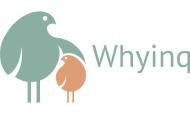What is a workshop and why should you run one?
A workshop is an all-encompassing, hands-on learning experience where the ultimate goal is to produce a specialized product.

Workshops are not merely for participatory discussions. They provide an environment where people can work together toward a common objective, effectively collaborate, and resolve challenging issues. You've come to the correct site if you want to learn more about workshops, understand how they differ from meetings or training, or just want to start organizing them!

For businesses as well as individuals, a well-designed workshop may foster invention, connections, and transformation. This post will explain workshops, go through their advantages, and provide some instances of workshops that you may utilize to get ideas for your own team's work.
What is a workshop?
A workshop is an organized, interactive session intended to lead a group through a process that will produce excellent results and to ster an atmosphere for meaningful work.
Workshops aim to captivate attendees and encourage their hands-on participation in the process. These aren't one-person instruction sessions where everyone in the room learns from one another. Nor are they gatherings where individuals share updates with one another but infrequently work together to complete a task in an organized manner.
Participants can explore, brainstorm, and take part in reaching their intended goals through hands-on activities, facilitation techniques, group discussions, simulations, and collaborative exercises that are commonly included in workshops. whether that's coming at an exact solution to a challenging issue or developing their abilities via experience.
Almost any subject you can imagine can be covered in a workshop; for example, schoolchildren can participate in a creative writing workshop, while business leaders can attend a strategic planning session.
These workshops share common ground in that they aim to foster a dynamic environment where participants are encouraged to share knowledge, think creatively about problems, and apply what they have learned to both the workshop and outside of it.
All workshops have one thing in common: they are planned and organized to support a group in achieving a specific goal. A workshop facilitator will frequently organize the activities in the workshop as a series, paying close regard to timing, flow, and the best possible group dynamic.
Regarding the actual creation of your workshop schedule, SessionLab is a helpful resource for creating a workshop flow and guaranteeing punctuality!

What is the difference between a workshop and meeting?
Workshops are distinguished from meetings, seminars, and training sessions by their focus on collaborative work, experiential learning, and active involvement.
A workshop is much more than just an interactive meeting, although you could start to think of it that way. A workshop's goal is to lead participants through a process where they brainstorm, consider possibilities, and ultimately develop a plan of action.
Workshops are a lot more participatory than meetings or training sessions, and they frequently follow a format intended to let a group work together to investigate a topic and come up with original answers. Although the facilitator will facilitate interaction and involvement through tried-and-true methods and technological tools, the session's results are the result of a true team effort.
For me, a crucial difference is that workshops frequently involve small groups investigating a problem and then actively cooperating to develop a solution. Envision the strategic planning that your organization could implement. There is a meeting if the manager calls one to explain your plan to the group. A workshop is when the supervisor invites a facilitator so that everyone in the group may work together to examine ideas and develop a plan.
When considering the differences between a workshop and a training session, there is another one that I find useful. In a training session, you are aware of the goal before you start: you will instruct your group on how to accomplish a goal in a pre-established way. They'll frequently be expected to finish the course with a certain set of skills and be given training materials that are graded on a pass/fail basis.
In a workshop, it's possible that you won't know the precise result; instead, the group must work together to get that goal. It's true that you want staff members to use a procedure intended to generate ideas in order to explore creative thinking, but you have no idea what those ideas will entail.
As a workshop facilitator, you make room for the group to contribute their specialization, inventiveness, and professional experience to the process.
In a workshop, as opposed to a meeting or training session, participants are encouraged to brainstorm, discuss, and examine ideas before coming to a decision through a process that is frequently planned and facilitated by a facilitator. They contribute to the entire workshop experience and take a more active role in guiding their learning process.
The end effect is a considerably more imaginative and cooperative setting that promotes involvement, ownership, and truly significant results.
What is the purpose of a workshop?
A design sprint and a retrospective workshop have very different purposes, but the overall purpose of a workshop is the same. However, the objectives or goal of a workshop might vary depending on the location or specific topic.
A workshop's goal is to establish a secure, mutually trusting environment where participants may collaborate, think critically, and reach conclusions in a methodical and planned way.
Whether the goal is to define how to accomplish a challenging project, acquire skills, or focus on personal growth, the workshop's objective is to create an engaging, interactive atmosphere where participants can fully engage, collaborate creatively, and collaboratively to arrive at desirable solutions.
Working towards that goal is what distinguishes workshops as a unique and useful tool. Creativity is released when you establish a safe environment where your team is empowered to come up with solutions on their own.
Your team is exceptionally engaged and able to concentrate on achieving those goals. They find answers that they would not have found otherwise, and they form deep and enduring relationships with other participants.
I have found that a well-done workshop has the power to change people for the better and that the enhancements in teamwork, communication, and problem solving extend well beyond the confines of a single session or project.
Here's another way to define a workshop: it's a tool used by teams to discover more efficient ways to work together and independently to accomplish their objectives.
Read Also:Mastering Ecommerce Marketing: Strategies for Success
When should you run a workshop?
As we've seen, organizing a workshop is often one of the best approaches to get people in a group to collaborate, solve issues, and create new ideas.
That being said, not every session you conduct needs to be a workshop. Not at all! Sometimes calling a meeting is the best approach for your team to get together, like when you're performing a daily update or company all hands and someone has something important to contribute.
Among university students, the best approach to quickly spread learning materials is frequently through seminars, in which an expert in an area is shared with a sizable audience.
To put it briefly, if you want a group of individuals to work together effectively—typically in a time-boxed or outcome-focused manner—you should think about organizing a workshop.
A workshop would be a wonderful idea to prepare if you know your group will benefit from this method. Workshops are great at delivering results in a way that makes space for different voices and viewpoints.
The following are a few typical catalysts for holding a workshop:
- having a complex problem without a clear solution
- a need for genuine innovation and new ideas
- team building or team development
- teaching new skills in an experiential manner
- community building
- working on a project in a deeply collaborative and emergent way
- opening or closing a project
Using a small group (often 8–15 individuals) is another excellent workshop management technique that will foster conversation, divergent thinking, and innovation. When conducting workshops for a bigger group of people, you should consider hiring more facilitators and possibly doing sessions concurrently.
Do you just want to impart new technology skills to your staff or disseminate executive team information to the entire organization? That most likely isn't a workshop, and that's okay! For the goals of your session and the outcomes you hope to get, choose the appropriate format.
Workshop examples
Workshops are available in a variety of sizes and styles, but you may be curious in how they are constructed and what they actually look like in use. It can be helpful to view an agenda sample before you try leading a workshop yourself, especially if you're new to facilitation!
We'll look at a few sample workshops below, including the reasons and circumstances for conducting them with your team. For each, there is an agenda template available as well, so you can view the workshop procedure in greater depth.
Ideation Workshop
Workshops are ideal places to generate creativity and ideas that you can really work on putting into practice. To tackle a difficult subject with multiple stakeholders and differing perspectives, organizing a workshop with your finest minds is the best course of action.
Using this template for an ideation workshop, a group of people come up with a ton of fresh ideas for a project, analyze those ideas, and then pitch the best ones to one another. By the time the workshop ends, you and your group will have had a comprehensive discussion of ideas and utilized tools to refine the finest ones into a workable plan.
Businesses that support this kind of unique ideation and take the effort to enable their staff tend to be more inventive and resilient. The next time you need a fresh perspective or are searching for your next big idea, consider introducing such a workshop to your organization.

Decision Making Workshop
In any given field, there will come a moment when you must decide as a group. A decision-making workshop is a way to go through many choices, settle on goals, and proceed as a group. It is a forum where staff members may voice their opinions and feelings before coming to the best choice for the business.
With the help of this template, you can use consent-based decision making to go from conversation to action while allowing input from front-line staff members and management alike. It's a productive session for creating a feeling of community and moving things along.
This workshop is the ideal remedy if you've tried including more people in your decision-making processes but found it to be unorganized or useless. It allows for the inclusion of all viewpoints while still achieving the desired result.
Retrospective
In intricate projects requiring creative problem-solving, workshops can play a crucial role in the beginning and end of the process. I've even discovered that employing a workshop approach to program closure might be advantageous for organizations operating in university or training environments that offer rigorous educational programs.
Using this template for a retrospective, you and your team will have a place to reflect and talk about what went well and what could have been done better before deciding on some next actions that will help everyone advance their skills and enhance the next project.
Getting together for a retrospective workshop can help you celebrate and symbolically close down operations after a week-long event or longer project, while also providing a space for introspection and development.
In conclusion
Usually, the first step in implementing workshops in your company is to understand how they differ from meetings or training sessions.
For next steps, see our detailed guide on workshop planning to find out how to put together a successful workshop.
Do you want to become a better facilitator? This article will assist you in understanding the essential skills for successful facilitation that you may apply in meetings, workshops, and your everyday group work practice.
We hope that this blog article has clarified the what, why, and how of conducting a workshop, and that it has even motivated you to lead one the next time your company has to come up with an innovative solution or address an issue.












